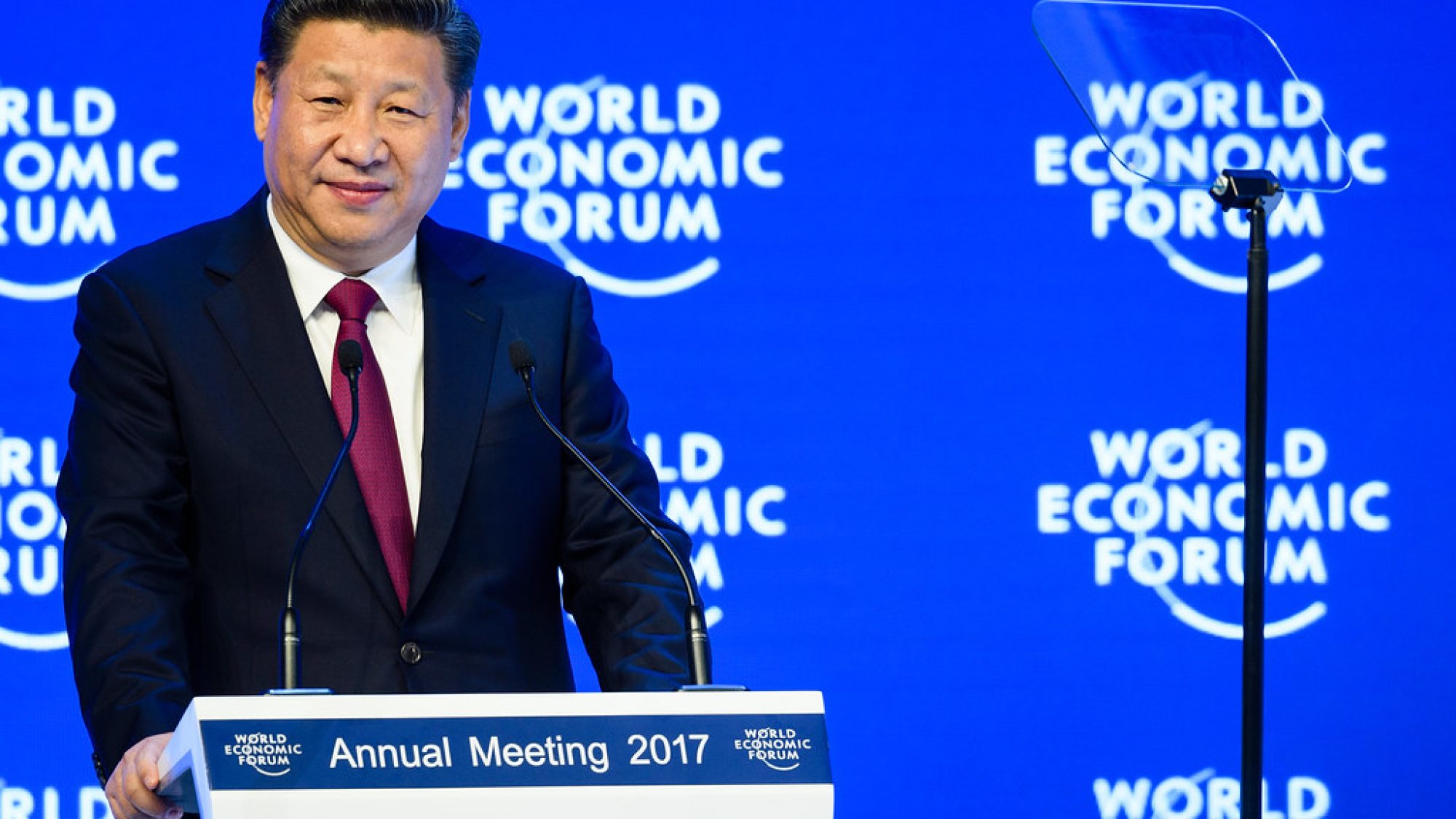
Title: Dr. Alicia Garcia-Herrero on How China is Combating Economic Deceleration Through Development
Relations between China and western nations have been strained for centuries, and both sides have sought out various models of economic interdependence. As China reaches a new, challenging stage in its economic development, Dr. Alicia Garcia Herrero, Chief Economist for Asia-Pacific at the French investment bank Natixis, discusses the motives behind China’s economic policy.
GJIA: You have written and spoken about how the Chinese economy is undergoing a process of deceleration. Could you elaborate on why this deceleration is taking place?
AGH: I see everything from the light of economics. So, I think that the economic situation in China determines a lot of the political situation in China. I came to believe that the Communist party’s model to stay in power was an economic one: the state would offer growth, wellbeing, rapid increase in purchasing power, and in return, the citizens would provide their hard work and parts of their freedom. So the economic situation in China, in one respect, is one of the most important ways in which the Communist Party finds legitimacy.
On the economic situation in China, since President Xi Jinping came to power, I think he knew that he was on a rollercoaster that was already going down. That has nothing to do with him, but as a general pattern, as a country gets close to a GDP of 10,000 per capita, the rate of economic growth slows down. The question is, how much can they push that deceleration? Will China be able, now that it is a middle-income country, to get to the high-income group?
What has China been focusing on to combat this deceleration?
Because of the potential of deceleration, President Xi Jinping has decided on an economic agenda that is central to everything he is doing, such as foreign policy. To start, he needs to make sure that on the circulation side, the market remains dominated by Chinese companies. He cannot share that market, as it is the source of his wealth. For many of his companies, they have quite a lot of profit margin because they work in an oligopolistic environment, and with such a high profit margin, they go to the rest of the world and expand. This is why, today, we have more Chinese companies in the Fortune 500 than US companies. Why? Because they make full use of that market. China is focusing on self-reliance, such as producing everything the country needs. This will allow them to extract all the rents from their own market rather than relying on others. This is the first idea, as the rents are going to cushion their deceleration.
The second method that the president is attempting to use is to profit from external markets for as long as he can, which the country is doing through the Belt and Road Initiative. This first means that he should try to make some markets captive — where China must become their largest exporter and perhaps even import key commodities. As a result of these policies and plans, countries across Africa, South Asia, and Latin America have become dependent on China. This is China’s game with the Belt and Road Initiative, to create a structure so these countries look towards China; therefore, the economic linkage becomes China. An example of this is Pakistan — because of massive infrastructure investment, Pakistan has become more integrated with China rather than with the rest of the world.
What measures is China focused on in terms of combatting deceleration and escaping the middle-income trap?
Looking at every country that has escaped the middle-income trap, South Korea has the largest growth rate at 5.5 percent. If China grows more than this 5.5 percent, it will be stellar, as it will be one of the fastest-growing countries in that category. However, currently, they are heading towards the low end of the table, maybe at around 3 percent growth. Although President Xi Jinping has talked about how they have passed the middle-income path, their actual GDP per capita still reflects them as a middle-income country.
How does China’s shift towards self-reliance, as well as isolation from Western nations, affect cooperation on global issues, for example, climate change or global disease prevention?
Based on what I have read, China, the Communist party, and President Xi Jinping believe that the West is in its demise and that the United States will soon no longer be the hegemon. There have been a lot of events lately that could hint at that reality, especially with the January 2021 Capitol riots and military failure in Afghanistan. But he still wants to shield the Chinese economy from sanctions, and from other actions that can hurt China. As a result, the Chinese president will leverage everything he has in light of the weak United States.
One can see this with China’s action on climate change. The majority of the world wants China to reduce its emissions. To China, however, there is a price to that, as they prefer leveraged cooperation over voluntary cooperation.
For something sensitive like climate, where the whole world is aware of it, China is playing hardball with a topic that everyone cares about. It does not pay off to leverage something as global and human as climate. They are underestimating the skill and the power of public opinion. They are underestimating a concerted move by the West because they believe their leverage is infinite.
Do you see any potential for global economic reconciliation?
Long story short, yes, there will be. But timewise, this will happen at a point of economic downturn for China. China will understand the need for reconciliation after a bit of a crash, as they will be more accepting of a more multipolar world. Today, they are operating on a winner-takes-all strategy, and they might move away from that once they realize that winners do not actually end up taking all. I just think it will take time — China will need to go through a hassle that might take up to ten years — until they will become a more stable economy and approach the world in a more open way. This is just one of the many cycles that China will be entering. When they reopen, they will be in a more conciliatory mode. The West will also want China, as they are not going to grow anymore without them. But, I would estimate that it will still take approximately six to eight years before China is willing to come to terms with reconciliation.
This transcript has been lightly edited for clarity and length.
…
Alicia Garcia Herrero is currently the Chief Economist for Asia-Pacific at French Investment bank Natixis, having served since June 2015. She is also Senior Fellow for the Brussels-based think tank Bruegel, an Adjunct Professor at the Hong Kong University of Science and Technology, and a member of the advisory board of Berlin-based China think-tank MERICS. Her Twitter handle is @Aligarciaherrer.
Interview conducted by Shevani Tewari
Image Credit: Flickr; World Economic Forum; Creative Commons 2.0 License
Recommended Articles

Cruises have increasingly become a popular choice for families and solo travelers, with companies like Royal Caribbean International introducing “super-sized” ships with capacity for over seven thousand…

In March 2025, widespread protests erupted across Türkiye following the controversial arrest of former Istanbul Mayor Ekrem İmamoğlu, an action widely condemned as politically motivated and…

In this interview, GJIA sits down with Jojo Mehta, Co-Founder and Chief Executive of Stop Ecocide International, to discuss the global movement to codify ecocide as an international…